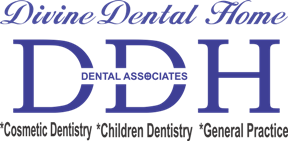
When it comes to dental cleaning, there are two main options: regular cleaning and deep cleaning. A dental professional performs both types of cleanings which are important for maintaining good oral hygiene. But, they are for different purposes. And may be for other patients based on their individual oral health needs.
Regular cleaning:
Also known as prophylaxis is a routine cleaning performed every 6 months. This type of cleaning is for patients with no signs of gum disease. During a regular cleaning, a dental professional will remove plaque, tartar, and stains from your teeth, as well as polish your teeth to leave them smooth and clean.

Deep cleaning:
Also known as scaling and root planing, is for patients with signs of gum disease. This type of cleaning is more extensive than regular cleaning and is in two stages. During the first stage, the dental professional will remove plaque and tartar from above and below the gum line. In the second stage, the dental professional will smooth out the roots of the teeth to remove any rough spots where bacteria can accumulate.
It’s important to note that deep cleaning is generally more extensive and may take longer than regular cleaning, and may require local anaesthesia.
Your dentist or dental hygienist will be able to recommend which type of cleaning is right for you based on your individual oral health needs. Regular cleanings are essential for maintaining good oral hygiene and preventing serious dental problems from arising. In the case of gum disease, deep cleaning is more appropriate.
It is right to schedule regular dental cleaning appointments every 6 months. To maintain optimal oral health. And consult with your dental clinic in case of any specific oral health concerns.
Recent studies have shown that there may be a link between oral health and other health conditions such as heart disease, diabetes, and even pregnancy complications. The bacteria that cause gum disease is found in the bloodstream. Which may contribute to the development of these conditions.
In addition, regular dental cleanings can also detect health issues like oral cancer, which if not caught early, can be life-threatening.
Furthermore, poor oral hygiene can also lead to some issues like bad breath, tooth sensitivity, and difficulty eating or speaking.
It is essential to maintain good oral hygiene through regular brushing, flossing, and dental cleanings. It is highly recommended to schedule regular dental cleaning appointments every 6 months to maintain optimal oral health. In addition, if you have any specific oral health concerns, your dentist may recommend more frequent cleanings.
Don’t hesitate to reach out to your dental clinic to schedule your next dental cleaning appointment, and take the necessary steps towards overall health and well-being.
In conclusion, dental cleanings are essential for maintaining good oral hygiene, preventing serious dental problems, and detecting other health issues. Regular dental cleanings can also improve overall health and well-being. It is highly recommended to schedule regular dental cleaning appointments every 6 months to maintain optimal oral health.


